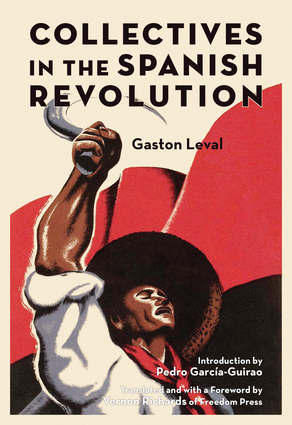Overview
Gaston Leval's study brings together two aspects that are generally difficult to unite—analysis and testimony. He visited the towns and villages of revolutionary Spain where people had opted to live a libertarian communist lifestyle almost without precedent in history, collectivizing the land, factories, and social services. Collectives in the Spanish Revolution demonstrates clearly that the working class are perfectly capable of running farms, factories, workshops, and health and public services without bosses or managers. It proves that anarchist methods of organizing, with decisions made from the bottom up, can work effectively in large-scale industry, involving the coordination of many thousands of workers in many hundreds of places of work across numerous cities and towns, as well as broad rural areas. Leval's history of anarchy in action also gives insight into the creative and constructive power of ordinary people. The Spanish working class not only kept production going throughout the war, but in many cases managed to achieve increases in output. They improved working conditions and created new techniques. They created, out of nothing, an arms industry without which the war against fascism could not have been fought. The revolution also showed that without the competition bred by capitalism, industry can be run in a much more rational manner. Finally it demonstrated how an organized working class has the power to transform society.Reviews
"Collectives in the Spanish Revolution demonstrates clearly that the working class are perfectly capable of running farms, factories, workshops, and public services without bosses or managers dictating to them." —Stuart Christie, author of The Floodgates of AnarchyAuthor Biography
Gaston Leval (1895–1978) was the son of a French Communard, who escaped to Spain in 1915 to avoid conscription during the First World War and joined the anarcho-syndicalist Confederación Nacional del Trabajo trade union. Leval lived in Argentina during the dictatorship of Primo de Rivera and returned to Spain to become a militant fighter while documenting the revolution.

